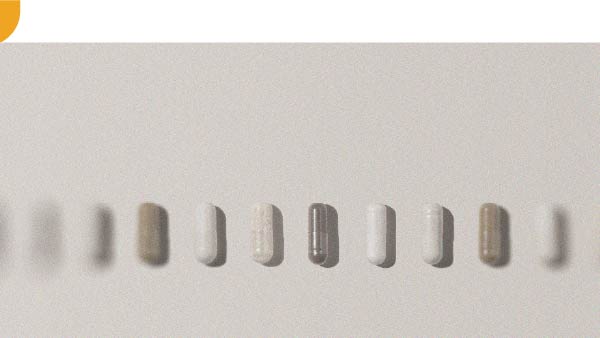What’s the best way to take vitamin B12?
How does the body absorb vitamin B12? Which supplement should you choose? Is there an ideal time of day to take it? Supersmart provides the answers.

For maximum absorption, vitamin B12 should be taken in spaced out doses during the day as the body can only absorb small amounts of B12 at a time. It’s also best to avoid taking it too close to a vitamin B12-rich meal: one, for example, containing offal or red meat in general, shellfish, oily fish (tuna, herring mackerel, trout) or eggs...
With regard to dietary supplements, the three forms of vitamin B12 (cyanocobalamin, methylcobalamin et hydroxycobalamin) are all absorbed by the body in a similar way.
Why does vitamin B12 need to be taken in several doses?
The body absorbs vitamin B12 via two mechanisms (1):
- Passive diffusion, which takes place in the mouth and gut: this is a minor system and is insufficient to deliver an optimal intake of B12;
- Diffusion that depends on an « intrinsic factor ». This is a glycoprotein released in the stomach when gastric acidity results in the cleaving of cobalamin from the proteins to which it is attached. This system of diffusion is more effective but saturable: once the ‘quota’ of absorbable vitamin B12 is reached, it will take around four to six hours before it can again be absorbed.
That’s why it’s advisable to take supplements in several doses, and to avoid taking them at the same time as a vitamin B12-rich meal.
The role of vitamin B12 and potential consequences of deficiency
A deficit in vitamin B12 can pose serious health risks (2), such as:
- anaemia (lack of red blood cells);
- nerve problems which can prove irreversible if the B12 deficiency is not quickly addressed: ataxia, a disorder that affects coordination, is one of the symptoms of cobalamin deficiency;
- incontinence;
- problems with vision.
Certain individuals need to be particularly careful when it comes to vitamin B12 intake:
- older people in whom absorption is less effective;
- those following a strict vegetarian or vegan diet, since cobalamin is primarily found in foods of animal origin.
Several studies have demonstrated the efficacy of vitamin B12 supplementation (up to 2mg a day) in preventing deficiency. We recommend Methylcobalamine 1 mg, a supplement that comes in the form of sugar-free, sub-lingual tablets, and helps to optimise function of the nervous system and reduce fatigue.
References
- O'Leary F, Samman S : Vitamin B12 in health and disease. Nutrients. 2010, Vol. 2(3), pp 299-316.
- Pierre Rufenacht, Anne Iten, Sara Mach-Pascual : Hypovitaminose B12 : challenge diagnostique et thérapeutique. Rev Med Suisse. 2008, Vol. 4, pp 2212-2217.
- Kuzminski, A. M., Del Giacco, E. J., Allen, R. H., Stabler, S. P., and Lindenbaum, J. Effective treatment of cobalamin deficiency with oral cobalamin. Blood 8-15-1998;92(4):1191-1198.
9 Hours
very good expereince
very good expereince
Jelena Đaković
10 Hours
Very good products.
Very good products.
Agnes BENDSAK
2 Days
Just OK
Just OK, ordering from company for many years and being safisfied
Lynn Mae
3 Days
Recomendo
Produtos encomendados são recebidos atempadamente e de acordo com o anunciado! Muito satisfeita!
Carla Sofia
3 Days
Everything is great!
Everything is great!
Jonas
8 Days
The delivery was fast and the product…
The delivery was fast and the product is great
SOMMARIVA Gianni
9 Days
Great service and lots of information
Great service and lots of information
Gabi
12 Days
Service Satisfaction
I’m satisfied with the service; it fulfilled what it set out to do.
Anfhony Abreu
15 Days
Original product and fast delivery
Original product and fast delivery. I haven't started it yet, but will do soon.
Vincenza Catania
18 Days
Good quality
Good quality. Good service.
Leonel Guzman
20 Days
Top!!!!!!!!
Top!!!!!!!!
Michael
22 Days
Excellent!
Products are great and delivered fast!
PARDINI Debora
23 Days
From order to receive the product
From order to receive the product, the process is smooth & fast. It’s good to customers.
WONG Mei Ling
24 Days
Fast delivery
very quick delivery to italy. product is good.
Customer
25 Days
Prompt delivry !!👍
Prompt delivry !!👍
SWEET Christine
of experience
your money back
##montant## purchase




